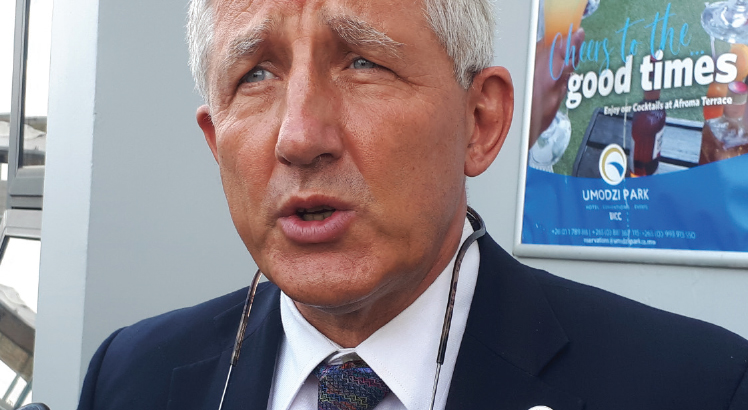Relief maize to be milled amid import ban
The World Food Programme (WFP) says 30 000 metric tonnes (MT) of relief maize destined for Malawi will be milled following an import ban of the maize from Kenya and Tanzania.
The relief stock, being bought with support from the World Bank, will be provided to the Department of Disaster Management Affairs (Dodma) to get to the millions of Malawians requiring humanitarian assistance.
Initially, the maize was supposed to be tested by experts for the maize lethal necrosis (MLN) disease and then transported to Malawi.
But WFP Malawi country director and representative Paul Turnbull in a written response to a questionnaire yesterday said the decision changed after discussions with the authorities and stakeholders.
He said: “We have opted to import maize flour instead of maize grain in alignment with government requirements, particularly the ban on importing maize grain from Tanzania.

“Since we are importing processed maize flour, the MLN testing, which was initially planned for the grain, is no longer required.”
However, Turnbull said they want to assure the public that standard food safety and quality assessment will be undertaken for the processed maize flour to ensure it conforms to the Malawi standards before distribution.
As for when the maize flour is expected to start coming into the country, Turnbull said negotiations are underway, and the operation will begin once the agreements are finalised,
“Arrival dates for the maize flour will be contingent on the operational schedule. As of our current estimates, we anticipate the maize flour to arrive in the country within the lean season response period, concluding at the end of March 2024.”
Minister of Agriculture Sam Kawale also said only maize flour will get into the country.
“The tests can still be done but that does not mean maize will come. We will still have maize flour and assist those in need. All of it will be milled,” he said.
Dodma commissioner Charles Kalemba said the 30 000MT has been split between Tanzania and South Africa.
He said: “We are still expecting 30 000MT with 15 000 MT each from Tanzania and South Africa. The reason is milling capacity. We needed the food yesterday and we have split because South Africa has a bigger milling capacity than Tanzania, that’s what we are told by WFP.
“The Tanzania one should start trickling in this weekend or next week, latest. The ban is not for maize products, but for the whole grain. With the drought people have lost their seed and some may want to get the same maize and plant, that’s where the problem is.”
According to Kalemba, the distribution set-up will not change with those who were getting a bag of maize to still get a bag of maize flour. He said the distribution exercise for the process already started was going on well.
The disease poses a severe threat to maize production as plants with the disease are often barren and the ears formed are small with no or a few deformed seeds, thereby lowering the yield drastically.






One Comment